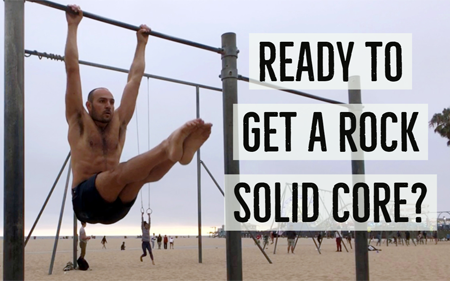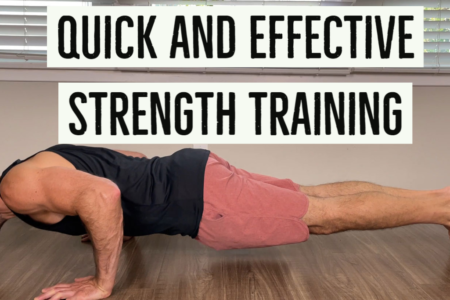
Here’s something new that I want to share with you. Intermittent fasting is an absolutely fascinating idea that may sound crazy to you, but it’s actually really incredible. I wanted to share this article when I first started intermittent fasting but alas, I waited several weeks to make sure I get comfortable with it and enjoy it. And yes, I love it, so here goes. This article is also an exercise in critical thinking to help dispel nutrition myths.
What is Intermittent Fasting?
When you hear the word fasting, you probably think of people who are eating nothing but lemon juice and water for a week. But that’s not what Intermittent Fasting is. For example, one of the styles which I enjoy the most is called the 16/8 protocol:
16/8 means…
- You don’t eat for 16 hours. (This is the fasting phase.)
- Then you eat all the calories you normally would eat in the other 8 hours.
Here’s how I see it: When you wake up in the morning, you’re already half way through the fasting phase because you haven’t ate anything for the past 8 hours. Then you simply skip breakfast and don’t eat anything until lunch time. So instead of eating between morning and evening, you simply eat between just the afternoon and bedtime. This gets the body used to burning fat for energy rather than carbs because there are literally less carbs to breakdown. As a result, people like me are breaking through plateaus and experiencing significant drops in body fat when combining it with a healthy diet and exercise.
Here’s the same example, but using numbers: If the last time you ate was at 8pm and you go to bed, then wake up at 8am, that means you’re 12 hours into the fasting phase and just have 4 more to go. You just have to refrain from eating until 12:00pm (Noon) to complete the 16 hour cycle. Then afterwards, you could eat your usual two or three meals in the next 8 hours (until 8pm, with this example). The trick is to not eat more calories than you normally would within those 8 hours, which is pretty easy.
It turns out that it’s much more satisfying/satiating to eat 1,500 calories in 8 hours rather than 12.
There are many IF variations:
- 24 hour fast for one day of the week and normal, healthy eating for the rest (called Eat Stop Eat diet)
- Lean Gains (incorporates 16/8 IF, calorie cycling and macro cycling.)
- 5:2 which means you eat normally for 5 days of the week but eat less than 500cal for each of the other two.
- Alternate Day Fasting (ADF) means fast for 24 hours every other day.
Is one better than the other? The 16/8 is not a true fast for 16 hours because you eat food and it takes hours for it to digest. This is what Martin Berkhan, creator of LeanGains, incorporates because there is no muscle loss involved with this. In fact, that’s the whole point of LG (to gain massive muscle strength and massive fat loss) down to the lowest body fat levels possible. The 24 hour fast is the most studied and has been shown to have extremely good oxidative effects. It’s assumed that a 16 hour fast will reap a good amount of benefits without having to be as “extreme” as a 24 hour fast. I talk about this in detail below.
This sounds bizarre, why did you start this program?
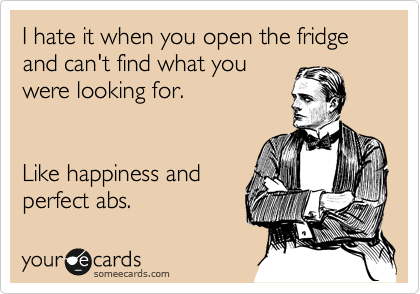
I had been counting calories for three solid months using MyFitnessPal. I went from 180lbs to 168lbs in the first two months, which was great. All I did was make sure I ate 1,600 calories a day (a deficit of nearly 1,000 calories) and kept exercising like usual. I would often easily stay within the deficit during the weekdays and would cut myself some slack on the weekends. I tremendously enjoyed the benefits of losing the equivalent of a sack of potatoes off my body.
But for the third month, I didn’t lose any more weight. I kept eating a healthy diet that averaged out to 1,600 calories a day and exercising plentifully. And despite all the exercise and calorie counting, I was stuck at ~168lbs. I know that I was losing fat and gaining muscle very slowly though, but here’s what was driving me crazy: It seemed like no matter how big of a breakfast I ate, I would be faced with a crazy amount of hunger after. Hunger that I didn’t have to deal with before. And even worse, the heartier and larger my breakfast was, the more extreme and ravenous my hunger would be afterwards.
Apparently this is not unheard and common for people that get in a lower body fat percentage. It was very clear that I had reached some sort of dreaded plateau and that I had to change something. While I don’t really care about how much I numerically weighed and I know 168lbs is already a great number, I wanted to keep losing some weight to reap even more benefits. So that’s when I was doing some research and discovered IF.
MYTH: But I’ve always heard that to keep your metabolism up you should eat 6-7 tiny meals instead of 2-3 big ones throughout the day. Won’t that increase your metabolic rate? Like constantly providing wood to keep the fire burning.

If you add little pieces of wood to a fire, it will intensify the fire. If you add a GIANT log to a fire (akin to eating a large meal), it will practically extinguish the fire. That’d be great if your stomach was a fireplace but I’m sorry, it’s not. It’s not literally burning food by fire and you most certainly aren’t eating wood.
Listen, I’m not saying eating small meals throughout the day doesn’t “work.” It works because it controls peoples hunger so they don’t go ape-shit come lunch or dinner time. But there’s absolutely nothing magical about it and it definitely doesn’t “rev up” your metabolism. Ultimately, what matters most is reducing your total calories regardless of the number of meals or snacks. Studies have shown there is absolutely no weight loss difference between dieters who eat their calories in three meals daily versus six. (WebMD source)
Now, I’m not saying people don’t lose weight by splitting their large meals up into smaller ones. I’ve definitely done it, but it has nothing to do with splitting the meals up. It has to do with trying to feel satiated all day so theoretically you don’t eat a large meal.
What pisses me off the most is this fireplace/wood analogy. Nothing could be further from the truth physiologically.
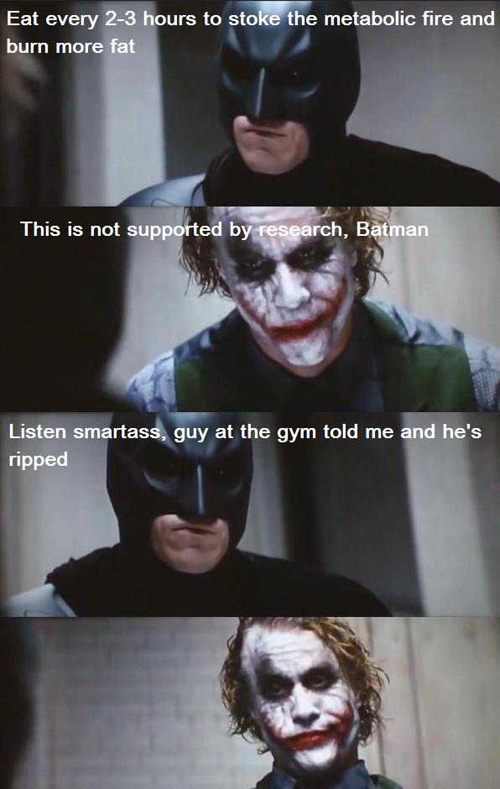
This metabolic-fire-analogy is a very common myth perpetuated by infomercials. Here’s the physiology behind how your body actually loses fat:
Your body stores a 24 hour supply of carbs in your liver and muscles in the form of glycogen. Glycogen is simply a chain of glucose molecules snapped together. If you exercise vigorously, the glycogen supply will be exhausted within just a few hours. If your body runs low on glycogen, it switches over to breaking down fat for fuel because it has no other choice. There are no other carbs in your body for your body to access. Even though we eat carbs all the time, only 1% of our body weight is made of carbs. The body tries to use carbs immediately as they are ingested. If you eat an excess amount of carbs, fat oxidation (fat burning) goes down because carbs are the preferred source of energy for your body because fat takes a much longer time to break down.
If you constantly keep eating food every 2 hours, then your glycogen supply (carb supply) is constantly being filled and your body is using the carbs from the food for energy. Your body has no reason to burn the fat that’s on your body if it’s constantly being fueled by food. But if you go hungry for many hours and you allow your blood sugar to fall, your body will release triglycerides from fat cells, break them down into free fatty acids and use them for energy. This breakdown of fat is known as lipolysis.
So in other words, the only way to burn fat (lipolysis) is to simply go hungry once in a while because it’s only when you run low on carbs is when your body will resort to lipolysis. (Note: This is why people lose fat on the low-carb/keto/atkins diets!)
Now, when you’re fasting and just standing around or doing low-strenuous cardio like walking, your body is mostly burning fat for energy because your body can take its sweet time to break it down for energy. If you exercise vigorously, your body taps heavily into your glycogen stores because carbs provide a much faster source of energy and only carbs can be processed anaerobically. Fat and protein can’t be broken down anaerobically (without the presence of oxygen). Only sugar can be broken down anaerobically. When the glycogen-reserves run out, and you keep trying to vigorously exercise, the expression commonly used is, you’ve “hit the wall” because it feels like you can’t move anymore. This is why marathon runners say running the last 6 miles is harder than the first 20. Your body has no choice but to switch to burning fats when the glycogen runs out and since fat can’t be burned anaerobically and takes more effort for your body to burn, all of a sudden you barely have enough energy left to exercise.
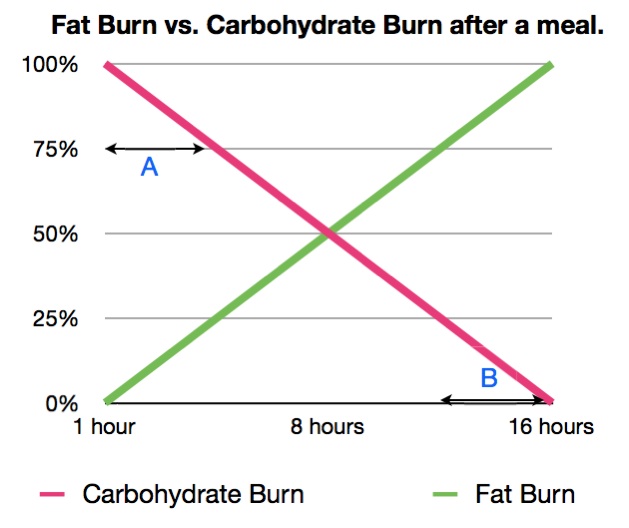
Here’s the point: I used to eat immediately the moment I felt the slightest anticipation of incoming hunger. Now, I know it’s totally okay to be hungry once in a while. You’re not supposed to eat 6 meals a day like as if you’ll die if you don’t. Biologically (and evolutionarily speaking), your body has no trouble keeping your body regulated without food for several hours.
Side Note: This “fire” idea probably came about when scientists discovered the thermic effect of food (TEF). For example, protein is often said to contain about 4 calories per gram but in actuality, when your body is done processing it, it turns out to be more like 3.2 calories per gram. So your body has expended some energy trying to use that energy. That’s the thermic effect of food. The infomercial-marketers took this idea and ran with it to mean other things.
MYTH: But wait, doesn’t fasting cause your metabolism to drop cause your body thinks it’s starving and it goes into “survival mode” or “starvation mode”?
Absolutely not. It takes several days of fasting for your metabolism to drop like that.
Here’s a quote from Martin Berkhan in a guest post on the Fitness Black Book:
“Metabolic rate does not slow down during short-term fasting. It actually increases slightly. That’s probably the complete opposite from what you’ve heard, but this is an undisputed fact. It takes more than three days without food before metabolic rate is negatively affected via down-regulation of thyroid activity. That skipping breakfast or missing a meal affects metabolic rate, a myth still propagated in the fitness and health community, is ludicrous.“
Sorry but your body doesn’t think you’re starving and it’s not going into “survival mode” just because you haven’t ate breakfast and lunch yet.
Check this out: The average 150-lb. man has about 1,800 calories worth of glycogen stored in their muscles and liver available for energy for normal body processes and exercise. Fit people can store even more glycogen in their muscles. If you want numbers, a trained muscle can hold approximately 32 g of glycogen per 3.5 oz of muscle tissue, while an untrained muscle only holds 13 g of glycogen. A 175-lb athlete can hold up to 4,800 calories worth of energy in the form of glycogen. This is why an athlete has so much more strength on tap and endurance.
It takes 2-3 days of fasting for the glycogen reserve to be completely exhausted because when you’re sitting around or doing low-intensity cardio (like walking), your body is breaking down a mix that is predominantly fat with some carbs. (Fats take a long time to break down for energy so it’s usually only used when the heart isn’t beating too fast, otherwise it switches to carbs for a faster energy source). Martin Berkhan, creator of LeanGains, chooses 16/8 because he says that maximizes fat oxidation while minimizing protein breakdown. Or in other words, the body doesn’t start looking at protein for energy until after the 16 hour mark.
So when does your metabolism drop from fasting and your body starts breaking down muscle?
It isn’t until your body needs to start breaking down muscle mass to use the protein that we consider this to be starvation and your body truly goes into starvation mode. The earliest evidence for a lowered metabolic rate in response to fasting stated that it occurred after 60 hours and there was an -8% drop in resting metabolic rate. Other studies show metabolic rate is not impacted until 72-96 hours have passed. [Here’s more info that dispells this myth.]
tl;dr: Short intervals of fasting does not slow your metabolism. In fact if you wanted to know the truth, studies show that intermittent fasting actually speeds up your metabolism. Slowing of the metabolism only happens after extended periods of fasting, at least several days, which is not what we’re trying to do or care to do.
So what are the benefits to IF? Turns out to be one of the most impressive “diets” I’ve ever come across in terms of anti-aging benefits.
Beyond vanity, the reported health effects of an intelligently designed Intermittent Fasting program read like a laundry list of live longer, live better benefits including: reduced blood lipids, blood pressure, markers of inflammation, oxidative stress, and cancer. Increased cell turnover and repair, fat burning, growth hormone release, and metabolic rate. And improved appetite control, blood sugar control, cardiovascular function, and neuronal plasticity. Scientists acknowledged the following major mechanisms by which fasting benefits your body, as it extends lifespan and protects against disease: Reduced oxidative stress: Fasting decreases the accumulation of oxidative radicals in the cell, and thereby prevents oxidative damage to cellular proteins, lipids, and nucleic acids associated with aging and disease. Increased insulin sensitivity and mitochondrial energy efficiency: Fasting increases insulin sensitivity along with mitochondrial energy efficiency, and thereby retards aging and disease, which are typically associated with loss of insulin sensitivity and declined mitochondrial energy. Increased capacity to resist stress, disease and aging: Fasting induces a cellular stress response (similar to that induced by exercise) in which cells up-regulate the expression of genes that increase the capacity to cope with stress and resist disease and aging. Increased Growth Hormone Levels: Since I stop eating at 6pm, my growth hormone (GH) can be released throughout the night in maximum amounts without interference from insulin production. Growth hormone is anabolic to muscle and catabolic to fat. In a study measuring the effects of fasting on growth hormone levels, fasting showed a marked increase in GH. [Source]. Increased Time in Fat Burning Mode: Going 16 hours without eating gives you a nice long window to burn fat in a favorable metabolic environment. The body will be breading down a lot more fat than usual because it’s simply running out of its glycogen (carb) stores and fat is the next best preferred source of fuel (and protein is the least preferred). No muscle loss (in regards to 16/8): This is very important for me as I am heavily involved in many sports and wouldn’t want to lose any strength. As long as you keep eating protein, you won’t lose strength. The Kellogg’s Company would like you to think you have to. But no, you don’t have to. I used to eat breakfast not because I actually craved breakfast but because I always thought eating breakfast was the healthy thing to do. Turns out, THAT’S ALL BULL SHIT! You don’t need to eat breakfast to “rev up” your metabolism. In fact, if you think you’re going to be low on energy, you’d be surprised to have more energy than ever! During fasting, catecholamines (adrenaline and noradrenaline) are released more than usual, which makes you alert and stimulates further fat breakdown. It’s true that statistically speaking, breakfast-skippers are associated with higher body weights. Not because it’s bad for you, but because breakfast skippers tend to be those people that show a higher disregard for health. (Put in another way: People who eat breakfast do so because they are trying to be healthy and balanced while people who skip breakfast are often people dieting in a haphazard manner, so they tend to be the heavier people.) Sometimes, an argument is made for eating breakfast by saying that we are more insulin sensitive in the morning: A higher insulin sensitivity means that you need less insulin to process the glucose (this is a great thing because the opposite, insulin resistance, is what contributes to type 2 diabetes!). It’s true, you are always more insulin sensitive after an overnight fast. But even more accurately, you are always the most insulin sensitive for your first meal of the day. Insulin sensitivity is increased after glycogen depletion. If you haven’t eaten in 8-10 hours, liver glycogen is modestly depleted. That glycogen depletion is what increases insulin sensitivity – not some magical time period during the morning hours! Same thing with weight training. Insulin sensitivity is increased as long as muscle glycogen stores aren’t full. It doesn’t disappear if you omit carbs after your workout. Some evolutionary history: As hunters and gatherers we didn’t have the luxury of having breakfast ready for us. When we woke up our bodies mobilized to have energy to go find food and hopefully find something to eat before nightfall. We didn’t have the luxury of eating something every two hours. Our bodies were and are perfectly capable of maintaining our blood glucose and hormonal levels for hours. Many would argue that it does it even better that way because you don’t have the intake of food constantly making your cholesterol and other values constantly yo-yo. Some linguistic history: The word breakfast hasn’t even existed in many cultures historically. Breakfast means it’s the first meal that “breaks the fast” but that doesn’t mean it must be at 8am. In the ancient Hebrew word it was “pat scacharit” which meant a tiny piece of bread at dawn and nothing more. The ancient Greeks and Romans always used to have their dinner be the big meal. According to Plutarch and Cicero, only slaves and farm animals were to be fed breakfast and lunch, but everyone else were very particular about eating their main meal at night. In the New testament, there is never mention of breakfast but only of “supper.” Without fasting there is no “break(ing of the) fast”! Our diurnal metabolic rhythm is geared towards cyclic fasting and feeding patterns, where the feeding hours have always been shorter than the fasting hours. [More proof that eating at night is okay.]
Well… honestly you could do whatever you damn well please but I wouldn’t recommended it because your biological feeding time is at night. Here’s a clip from this article that explains why eating in the evening and letting the foods process all night when you’re resting at night is what your body is set up to do as opposed to during the day. Nervous system basics: The sympathetic/parasympathetic division: the sympathetic and parasympathetic divisions typically function in opposition to each other. Consider sympathetic as “fight or flight” and parasympathetic as “rest and digest” or “feed and breed.” Your body is programmed for nocturnal feeding. All your activities, including your feeding, are controlled by your autonomic nervous system which operates around the circadian clock. During the day, your sympathetic nervous system (SNS) puts your body in an energy spending active mode, whereas during the night your parasympathetic nervous system (PSNS) puts your body in an energy replenishing relaxed and sleepy mode. These two parts of your autonomic nervous system complement each other like yin and yang. Your SNS, which is stimulated by fasting and exercise, keeps you alert and active with an increased capacity to resist stress and hunger throughout the day. And your PSNS, which is stimulated by your nightly feeding, makes you relaxed and sleepy, with a better capacity to digest and replenish nutrients throughout the night. This is how your autonomic nervous system operates under normal conditions. But that system is highly vulnerable to disruption. If you eat at the wrong time such as when having a large meal during the day, you will mess with your autonomic nervous system; you’ll inhibit your SNS and instead turn on the PSNS which will make you sleepy and fatigued rather than alert and active during the working hours of the day. And instead of spending energy and burning fat, you’ll store energy and gain fat. This is indeed a lose-lose situation. Unfortunately, most IF programs fail to recognize this. Advocates of skipping dinner argue that breakfast is an important meal and should not be skipped. Nonetheless, the science clearly indicates the opposite – the typical breakfast antagonizes the SNS and disrupts healthy circadian rhythms. There is growing evidence that the typical breakfast is the most harmful meal of the day. A study by the Human Nutrition Research France indicated that the typical high energy breakfast caused major adverse effects in the short and long terms. These included a strong inhibition of fat burning throughout the day, increase in serum triacylglycerol, decrease in HDL (good cholesterol), and over-glycemic reactions. The researchers concluded that high-energy breakfast does not appear to be favorable to health; they also indicated that the study’s results do not support the current advice to consume more energy at breakfast. Furthermore, a big breakfast has shown to yield only a limited satiety effect which lasts merely 2 hours after breakfast. Overall, science confirms that the typical high carbohydrate breakfast tends to increase fat storage, increase body weight, and increase the risk for cardiovascular disease and long term health. Drink water. That’s it! Water works really well. Lots and lots of water. Coffee is supposed to work really well as an appetite suppressant too. I’ll have a black decaf once in a while but tea much more often. Chicken broth in a cup of hot water is really good too but real high in sodium so it’s not something I would do every day. Chewing gum works wonders for some. I seriously don’t even experience much hunger until well into the mid afternoon. It was surprisingly very easy for me to adjust to this. Maybe it was because I was motivated to break through the plateau but it took me just 3 days to get used to 16/8. After a week I wasn’t experiencing true hunger until 5pm on rest days and naturally doing a 20/4 IF diet. Honestly, I was loving it by the 2nd day. I had plenty of energy. No, not just energy, but an incredible lucidity and productivity not bogged down by food. By far the greatest benefit is the mental side: THE FREEDOM! FREEDOM: It’s unbelievable how many people feel ‘trapped’ by the diet rules, as if there is only one correct way to eat… removing that stress seems to cascade into many other areas of health. I just count my calories using MyFitnessPal, eat whatever I want, but try to focus on all the good stuff (veggies, yummy fruits, etc) and I’m happy. I have more room to play with food. So I can fit a cookie into my one meal and be satisfied opposed to eating a small meal with a cookie and not being satisfied. Alright, so perhaps you’d like to give intermittent fasting for weight loss a try. I could write a whole book about it (and leangains articles to come!), but I’m going to simplify it down for you. Take 10 times your body weight (pounds) in calories and eat them all within the non-fasting schedule you decide on. So if you weigh 180lbs, then eat 1800 calories in the non-fasting hours. Please, please PLEASE download MyFitnessPal on your phone and start logging everything you eat. This was the #1 thing that to this day helps keep me in check because that’s my FOUNDATION. I’m a fan of the 16/8 and tend to do that on workout days. I try to do 20/4 on rest days. I just play it by ear. You can eat you calories in one meal, two meals, or whatever you like. Many people experience (including me) the best results with eating a tiny lunch and having dinner time be the bulk of the food. Go with how you feel. If you feel really hungry, have a bigger meal. Not so hungry? Wait a little longer and have a bigger meal later. Keep your foods coming from whole foods, stay consistent, and the weight will come off. Now you might say, WELL NO SHIT! But honestly, most people don’t do this. People eat breakfast because it’s “breakfast time” and have their lunch because it’s “lunch time.” They eat a snack before they are actually hungry, to prevent hunger from striking. So don’t tell me “No shit, that’s so obvious.” Because it took me weeks to actually get used to this extremely simple concept and accept the reality of it. I don’t eat at 2pm because it’s “lunch time” anymore. I eat when I feel like it and I try to stop when I’m actually full. What a simple concept huh? Don’t sweat the small stuff. The buildings aren’t going to collapse if you have 50 calories in the morning. Think about the bigger picture. One tablespoon of cream in your coffee isn’t going to ruin your fast. There’s always WAY BIGGER things to worry about. A bit of heavy cream in your coffee is the last thing I’d worry about. Here are much more important things you have to think about: Truthfully, any program that ultimately allows people to realize: …Is OK with me. And as always, don’t forget the basics Eat good quality food. Fresh, unprocessed, nutrient-dense food is a must, regardless of eating style. So make food awareness a priority and make the best choices you can afford. Eating reasonable portions. When calories are controlled, progress is made. Overeating is still possible with IF, just as it is with every other eating style. So pay attention to food amount. Meal frequency doesn’t matter, but simplicity is your friend. Two meals (at 1pm and 7:30pm for example) or three meals is fine if you prefer. It feels best to have a somewhat light lunch and then have the rest of your calories in the evening. Then you go to sleep like a baby and digest it all. I’ve been practicing calorie counting for four months, IF for one month and incorporating LeanGains in the past 2 weeks as of this writing. I will post progress pics and more info on the full lean gains protocol to share all the juicy details! In the meantime, check out Martin Berkhan’s awesome site where all this juicy information came from and also Lyle Mcdonalds BodyRecomposition.com site for extremely fascinating reading material. Oh and if you want a nice video, here’s a BBC Documentary called “Eat, Fast & Live Longer” that explores IF, calorie restriction, and more.But aren’t you supposed to eat breakfast?
Can I skip dinner instead of breakfast?
So what do you do in the morning to ease the hunger pangs?
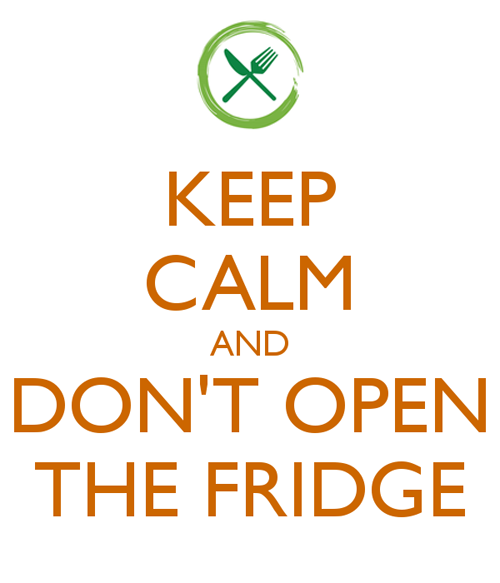
More unexpected benefits from this diet?
What’s a quick and easy IF plan for weight loss?
Eat when you’re hungry and don’t eat when you’re not hungry.
What if I have cream and sugar with my coffee in the morning? Will that break my fast?
Final Thoughts



